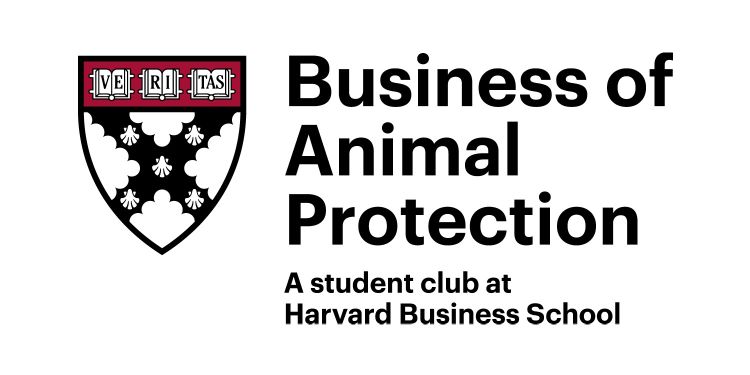Are you interested in connecting with other HBS MBA students dedicated to tackling climate change? Student Clubs are a vital part of the HBS Community experience that support the school's mission to educate leaders who make a difference in the world. We spoke with leaders from environmentally focused clubs to learn about the history of the club, the impact and mission, and the types of programming that members can participate in.
What if we told you that there is an environmental issue of profound moral importance and deep relevance to the field of business, but has to this point received limited concentration at Harvard Business School? That issue is animal protection.
The change in attitude towards animals is undeniable. Animal welfare ballot initiatives receive bipartisan support across red and blue states. Roughly 30-50% of Americans say they are in favor of banning slaughterhouses altogether. In the business realm, the global pet care market is estimated at a quarter of a trillion dollars.
Yet paradoxically, despite this increasing ethical clarity on the moral status of animals, business today is often a major source of animal suffering. In one year, more animals will be slaughtered for food than the number of humans that have ever lived on the planet– and a vast majority will be raised in horrific conditions that, if applied to dogs or cats, could warrant animal cruelty felonies in all 50 states in the US. And that’s not even considering the immense environmental footprint that animal agriculture and related industries have.
But it doesn't have to be this way. Business can be a tremendous force for good for animals and the environment, as students learned in the "Opportunities in the Plant-Based Economy" course taught by HBS Professor Max Bazerman in 2022. From innovating technologies that will improve the lives of animals used in industry, to reducing the number of animals used in industry, to engaging in philanthropic efforts to help animal protection NGOs, to transitioning industry to humane supply chains, students at HBS have the ability to help literally trillions of animals. It’s hard to think of another environmental issue with this much potential for mass positive impact.
The Business of Animal Protection (BOAP) is your gateway to these issues. We have three main focus areas:
- Create a social community. Want to meet other HBS students who care about animals? What about exploring Boston’s vegetarian food scene? This is the place for you.
- Introduce HBS students to industry leaders, ranging from the alternative protein industry, to leading non-profits, to policymakers, to thought leaders. Last year we brought the CEO of Impossible Foods to campus, along with business icon Suzy Welch, NYC Mayor Eric Adams’ food policy deputy director, a leading alternative protein VC and a non-profit leader.
- Advise students on how to use their careers to help animals. Importantly, this is not an all or nothing proposition – everybody can help animals, whether they are devoting their career to the cause or just want to find small ways they can pitch in.
BOAP is an inclusive, big tent organization. We have zero dues, and we welcome all, regardless of dietary preferences, experience pre-HBS, or plans post-HBS.
Ready to make friends and make a difference? Email David (dkay@mba2025.hbs.edu) for friends, fun and to help build a more humane economy.

